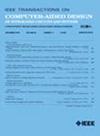Caphammer:利用能量收集系统的电容器漏洞
IF 2.7
3区 计算机科学
Q2 COMPUTER SCIENCE, HARDWARE & ARCHITECTURE
IEEE Transactions on Computer-Aided Design of Integrated Circuits and Systems
Pub Date : 2024-11-06
DOI:10.1109/TCAD.2024.3446879
引用次数: 0
摘要
能量收集系统(EHS)已成为传统电池物联网(IoT)设备的替代品。EHS 可利用环境能量并将其储存在小型电容器中,从而在能量充足时实现无电池操作。然而,电容器容易受到恶意充电/放电和过压的影响,从而导致电容损失。考虑到电容器的脆弱性,本文介绍了一种电容器锤击攻击(简称 Caphammer),它可以破坏每个 EHS 的安全性。其原理是,Caphammer 可以通过频繁断电来降低电容。一旦 Caphammer 降低了受害 EHS 的电容,它就会出现拒绝服务、数据损坏、数据加密失败和异常终止等问题。为了战胜 Caphammer,本文提出了一种电容器组调度方案 FanCap,它能在考虑到电容器脆弱性的情况下动态转换储能组织。实验结果表明,FanCap 可以成功挫败 Caphammer,运行时开销几乎可以忽略不计。本文章由计算机程序翻译,如有差异,请以英文原文为准。
Caphammer: Exploiting Capacitor Vulnerability of Energy Harvesting Systems
An energy harvesting system (EHS) has emerged as an alternative to traditional battery-operated Internet of Things (IoT) devices. An EHS harnesses ambient energy and stores it in a small capacitor, enabling batteryless operation when sufficient energy is available. However, capacitors are susceptible to malicious charging/discharging and over-voltages, which can lead to a loss of capacitance. With the capacitor vulnerability in mind, this article introduces a capacitor hammering attack, simply Caphammer, that can undermine the security of every EHS. The idea is that Caphammer can degrade the capacitance by using frequent power outages. Once Caphammer degrades the capacitor of the victim EHS, it can suffer from denial of service, data corruption, data encryption failure, and abnormal termination. To defeat Caphammer, this article presents FanCap, a capacitor bank scheduling scheme that can dynamically transform energy storage organization, taking into account the capacitor vulnerability. The experimental results demonstrate that FanCap can successfully thwart Caphammer with a negligible run-time overhead.
求助全文
通过发布文献求助,成功后即可免费获取论文全文。
去求助
来源期刊
CiteScore
5.60
自引率
13.80%
发文量
500
审稿时长
7 months
期刊介绍:
The purpose of this Transactions is to publish papers of interest to individuals in the area of computer-aided design of integrated circuits and systems composed of analog, digital, mixed-signal, optical, or microwave components. The aids include methods, models, algorithms, and man-machine interfaces for system-level, physical and logical design including: planning, synthesis, partitioning, modeling, simulation, layout, verification, testing, hardware-software co-design and documentation of integrated circuit and system designs of all complexities. Design tools and techniques for evaluating and designing integrated circuits and systems for metrics such as performance, power, reliability, testability, and security are a focus.

 求助内容:
求助内容: 应助结果提醒方式:
应助结果提醒方式:


